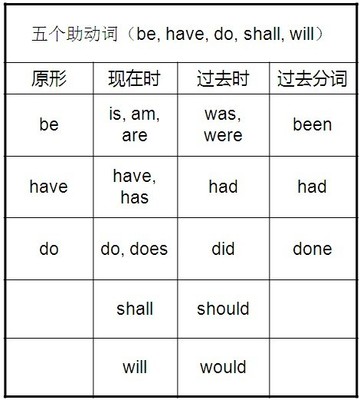sure与certain的用法区别
一、两者在用法上的相同点
两者都可用作表语,表示“一定”或“确信”,有时可互换。互换的场合应注意以下几点用法:
1. 表示说话者的态度或看法
即表示说话者自己的态度或看法,其意为“一定会”“肯定会”。此时主要用法有:
(1) 单独用作表语。如:
One thing was sure [certain]: they’d be late. 有一件事是确定无疑的,他们会迟到。
(2) 后接不定式。如:
He’s certain [sure] to win. 他一定会成功。
They’re certain [sure] to need help. 他们肯定需要帮助。
If you do this, you are certain [sure] to be found out.如果你这样做一定会被发现。
2. 表示句子主语的判断或信念
即表示句子主语对某一情况的判断或信念,其意为“相信”“确信”“有把握”等。此时通常用于以下结构:
(1) 后接of [about] sth。如:
He iscertain [sure] of success. 他确信会成功。
Are youcertain of [about] that? 你对此有把握吗?
(2) 后接 of doing sth。如:
Our team iscertain [sure] of winning. 我们队有把握赢。
You can besure [certain] of his agreeing. 你可以放心他会同意。
比较同义句:
He iscertain [sure] of winning.
=He is sure [certain] that he will win. 他自信会赢。
(3) 后接 that / whether / if 从句。如:
Iam sure [certain] that he is honest. 我肯定他是诚实的。
I’m sure[certain] that it’s not your fault. 我敢肯定这不是你的错。
Are youcertain [sure] that this is the right road? 你肯定这条路对吗?
注:当be sure [certain]为肯定式或疑问式时,后接that从句;当be sure[certain]为否定式时,后接whether [if]从句。如:
I’m not sure[certain] whether he still works there. 我不能肯定他是否还在那里工作。
I wasn’tsure [certain] whether he would agree. 我不太肯定他是否会同意。
He wasn’tsure [certain] whether he would be able to get back in time.
他不能肯定他是否能准时回来。
(4) 后接其他从句。如:
I’m not sure[certain] where she lives. 我不能肯定她住在哪里。
I’m notcertain [sure] who wrote it. 我不太清楚这是谁写的。
二、只能用certain的情形
以下情况通常只用certain,而不用sure:
1. 当句中用了形式主语或形式宾语 it 时。如:
It’s certainthat he’ll come tomorrow. 他明天肯定会来。
I thought itcertain that he would be late. 我肯定他会迟到。
It’s certainthat prices will go up. 价格肯定会上涨。
It’s notcertain how much it will cost. 这要花多少钱还不确定。
2. 当表示“某一”“某些”时。如:
A certain MrGreen wants to see you. 有个叫格林先生的人想见你。
Certainplants are good to eat but others are not. 有些植物好吃, 而其他一些则不好吃。
三、只能用sure的情形
在 Be sure (not) to do sth.(一定要或不要做某事)这类祈使句中通常不用certain。如:
Be sure notto forget it. 千万别忘记啦。
Be sure toget there before nine. 务必在九点前到达。
Be sure toturn off the light when leave. 离开时一定要关灯。
四、两者在习语中的用法
1. 用于 for certain / for sure,意为“肯定地”“确切地”等,两者可互换。如:
I can’t sayfor certain [sure] when he will come. 我不敢肯定地说他什么时候来。
No one knowsfor sure [certain] what happened to her. 没有人确切地知道她出了什么事。
2. 用于 make certain / makesure,意为“弄清楚”“弄得有把握”,两者可互换。如:
They madecertain [sure] (that) they weren’t late. 他们有把握不迟到。
I thinkthere’s a train at 10:40, but you’d better make certain [sure] ofit.
我想10:40有趟火车,但你最好去核实一下。
五、纠正错误
有许多同学认为,sure的主语只能是人,不能是事物;当主语是事物时,应用certain。其实,这是一种误解。关于sure的主语问题,有以下两点值得注意:
1.当表示说话者的态度或看法时,句子主语可以是人也可以是物。由于此时用“人”作主语的情形同学们比较熟悉,所以下面只举几句用“物”作主语的例子。如:
It’ssuretoraintomorrow.肯定要下雨了。
Thetrainissuretoarriveontime.火车一定会准时到达的。
Thedesignissogoodit’ssuretosetthepatternformanyothers.
这个设计很不错,肯定会成为其他许多设计的样板。
这类句子通常可以用I’msurethat...来替换。如:
It’ssuretoraintomorrow.
=I’msurethatitwillraintomorrow.
Thetrainissuretoarriveontime.
=I’msurethatthetrainwillarriveontime.
2.当表示句子主语的判断或信念时,句子的主语只能是人,不能是物。因为从逻辑上讲,只有“人”才能作出判断,才有自己的信念。如:
I’msureIwon’tlosemyway.我肯定不会迷路的。
I’msurewe’vemetbefore.我敢肯定我们以前见过面。
注:certain的主语特点也符合以上情形。
顺便说一句,sure有时还可与therebe搭配使用。如:
There’ssuretobeaplaceforhimsomewhere.在什么地方准有他容身之地。
Thereissuretobetroublewhenshegetshisletter.在她收到他的信时,肯定会有麻烦。

 爱华网
爱华网

